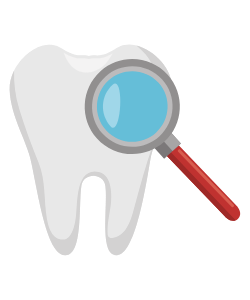When you lose some or all of your permanent teeth, dentures can work as perfect replacements. Therefore, you can get complete or partial dentures depending on the number of teeth that are missing. Regardless of the type of dentures you get, special maintenance is necessary to help extend their lifespan. Here are the top ways to ensure your dentures serve you for long and always look good.
Remove the Dentures
It is vital to take the dentures off before sleeping to give your mouth tissues time to recover. If taking them off before sleeping is not an option for you, find about six hours during the day when you can take them off. If you get dentures with metal clasps, store them in salty water after taking them off. A vinegar and water solution works best for dentures without metal clasps. Soaking helps to get rid of bacteria and plaque stuck in the dentures.
Use Proper Cleaning Processes
It is important to clean the dentures daily as you would with normal teeth. Failure to clean dentures causes the build-up of bacteria, and that may cause gum problems. Therefore, use a soft-bristled brush to clean dentures and avoid plaque build-up. Your dentist may also give you a special brush for cleaning the dentures. A mild toothpaste or dishwashing soap is perfect for cleaning dentures. The market offers a wide range of denture cleaning solutions but always get recommendations from dental experts.
Be Careful with Dentures
Dentures are costly and break easily, so it is essential to take good care of them. When cleaning them, use a bowl filled with water or a folded towel to prevent the dentures from breaking when they fall off. Also, avoid using stiff brushes and cleaners as they can damage the dentures. When you remove the dentures, ensure they are out of reach of pets and kids.
Get a Suitable Adhesive
Ensure you get the ideal adhesive for connecting the dentures to your gums. When the seal is not firm, tiny food particles will stick to the spaces, which is a recipe for bad breath. Since dentures reduce the amount of saliva produced, bad breath can be a serious issue. Saliva provides moisture in your mouth to keep it smelling fresh. Choosing the right adhesive enhances natural cleansing from saliva, eliminating bad breath.
Proper denture maintenance keeps them clean while preventing damage and discomfort. Visit your dentist regularly to get the dentures checked and cleaned by the expert. Dentists will also check for signs of underlying dental issues that may affect the dentures.
For more information about dentures, talk to a local dentist today.
Share
